And what we ought to do about it. Part 2 of a series by Patricia Paddey
Almost every working day Dr. Margaret Cottle, a semiretired Vancouver palliative care physician and clinical assistant professor at UBC Medical School, encounters MAiD in one way or another – someone talking about it, asking for it, being assessed for it or waiting for it.
DR. MARGARET COTTLE
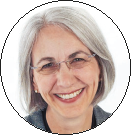
"It’s just become so routine," she explains. "The standard of care used to be when someone said, ‘I wish I were dead,’ our team worked hard to try to understand what lay behind that request, and then to do our best to address those issues. Now, many health care workers are not taking the time to explore the request in any depth. They simply respond, ‘Okay. We’ll call the MAiD team.’"
It is more than five years since Canada legalized euthanasia and physician-assisted suicide under the acronym MAiD or medical assistance in dying. Since then our nation has undergone a dramatic transition, from describing the act of a physician who deliberately puts a patient to death as murder, to regarding the same act as a welcome prescription for suffering. Access to MAiD is a constitutionally protected civil and human right and a publicly funded health care right under the Canada Health Act. It is worth noting that access to palliative care is not.
7,595 CANADIANS WERE PUT TO DEATH VIA MAID IN 2020. THIS IS A 34% INCREASE OVER 2019.
The country’s embrace of voluntary euthanasia has been so enthusiastic that 7,595 of its citizens were purposely put to death in 2020. That number represents a 34 per cent increase in MAiD cases over the previous year. It is approximately half the number of those who died of Covid-19 during the same period, and more than twice the average number of Canadians who die each year in motor vehicle accidents.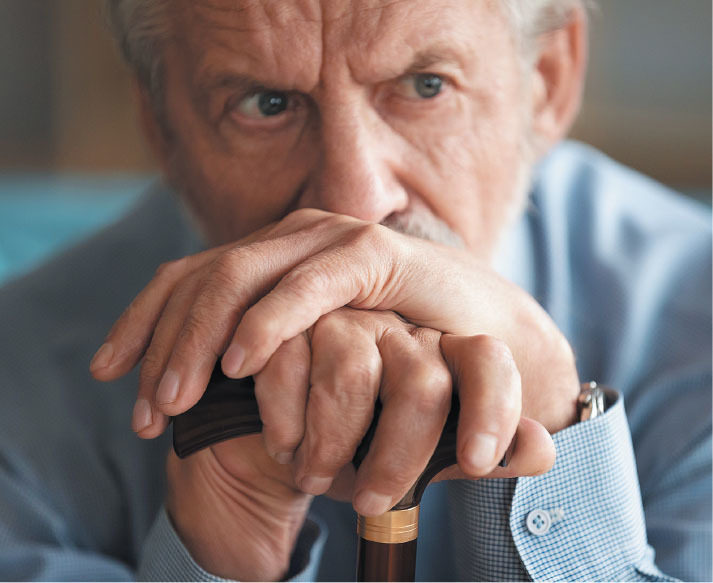
The numbers are only expected to climb as a result of the legislative expansion of MAiD that occurred in March 2021 with the passage of Bill C-7, which was designed to broaden access to those with non-life-threatening disabilities and chronic conditions, and possibly, within two years, to those with mental illness as their sole underlying medical condition.
Unprecedented shift
It all amounts to what has been described by medical professionals as an unprecedented shift in end-of-life practices in Canada. It is a shift that has left some longtime palliative care physicians grieving the changes in their profession. Some younger doctors are admitting to feelings of powerlessness and uncertainty at how to navigate their futures in a system that – in some provinces – compels them to participate by providing referrals for what they regard as the government-sanctioned killing or suicide of their patients.
DR. JOHN SCOTT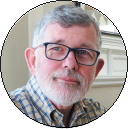
"There’s definitely a whole shift in philosophy regarding the role of medicine," says Dr. John Scott, palliative care consultant and associate professor in palliative medicine at the University of Ottawa. "But I think there is increased suffering as a result of MAiD, not a decrease, which is what we had predicted as Christians."
Among patients he has seen a growing, false sense of responsibility and what he describes as "a new angst" as people fret about being burdens to their families, contemplating whether they ought to take control over their own death by requesting MAiD, and if so, when. But the process of dying has always been and ought to be a letting go, he says, "a spirituality of relinquishment." He calls MAiD "a lie."
"It’s fascinating," he says. "People on very complicated medical, surgical treatments … all they would have to do is cut down a little bit and they would die quite gently and easily. But they get caught up into thinking they want MAiD. That’s affecting medicine a great deal."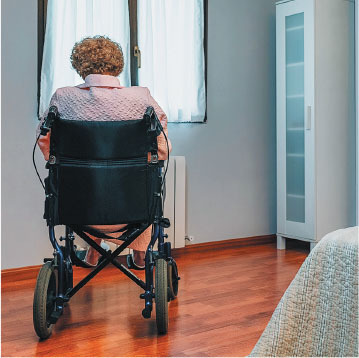
The patients he sees seem to regard MAiD not as suicide, but as just another medical procedure. "Some part of their brain thinks, ‘I’m not going to have to die. I can have MAiD instead.’ "
"It’s terrible. It’s a complete devaluation of what it means to be part of the human family," says Cottle. "Those of us who understand what palliative care is meant to be are grieving deeply about this. Our culture is so focused on control and avoiding suffering that we have lost our way. Even some who are Christians.
"Today, the unforgivable sin seems to be suffering, or to even suggest that it might be worth going through some types of suffering because of the richness of continuing to live and having the relationships that you have."
It is not undignified to be cared for, she insists. If we believe every person is created in God’s image, then they deserve such care. If we ourselves arrive at a place in life where we need care, then accepting that can be both a witness and a transforming experience – and even a gift – to others.
Our culture is so focused on control and avoiding suffering that we have lost our way.
"We need the young people around us to see you don’t have to be pretty or useful to be loved and cherished and worthy of care."
Calling in the MAiD team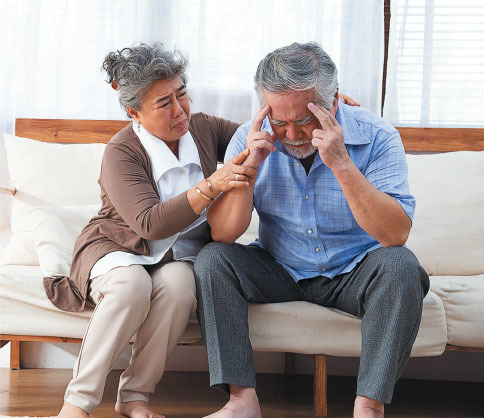
When Canada’s MAiD legislation was enacted in June 2016, the public narrative was that MAiD would alleviate the most profound cases of irremediable pain and suffering at the end of life. But according to the government’s Second Annual Report on Medical Assistance in Dying in Canada, which provides details from 2020, the most commonly cited kinds of suffering reported by MAiD patients were experiential, not physical.
The top kind reported, at 85 per cent, was "the loss of ability to engage in meaningful activities." Inadequate control of pain – or concern about it – came in a distant third, cited by 57 per cent. More than 33 per cent pointed to their perception of being a burden on family, friends or caregivers as a cause of their suffering. Almost 20 per cent cited isolation or loneliness.
Those working on the front lines of health care reveal that assurances of strict eligibility criteria and safeguards have also proven to be more flexible in practice than promised.
"I encounter a lot of patients who are not competent [to make the decision for MAiD], but who are receiving euthanasia," says Scott. "That’s upsetting."
He says it doesn’t matter if the physician in charge of a patient’s care thinks the patient is incompetent. If the two assessors assigned by the institution – typically physicians "keenly supportive of MAiD" – have declared the patient competent, the patient will be put to death.
Dr. James Boudreau is a fifth-year resident in internal medicine in London, Ont. He has seen MAiD providers, with a great deal of autonomy and little oversight, accelerate the process in patients for whom he thought there was no good cause. There’s a lot of pressure on physicians to keep patients moving through the system due to lack of resources, he explains, and he worries MAiD could become something of an escape valve to ease that pressure.
He has seen MAiD providers, with a great deal of autonomy and little oversight, accelerate the process.
He doesn’t believe most physicians would explicitly endorse this, but worries the ever-subtle pressure to create beds could lead to a situation where MAiD was presented as an option for that reason, instead of what some would consider the patient’s best interest.
"Our Canadian health care system is so crunched for beds – both hospital beds and long-term care beds – that we don’t have the capacity to treat patients coming through," he says. Our population has aged, but they have also developed more complex problems – and the availability of long-term care beds has not kept pace with the need.
"From the moment you start your clinical rotations in medical school, you get a lot of praise for discharging people."
The escape valve seems to be easing pressure on our health care system in more ways than one. An April 2020 article in World Medical Journal (coauthored by Margaret Cottle, John Scott and Leonie Herx) points out, "Euthanasia deaths are now serving as a growing source of organ and tissue donations in Canada.
"Given that most requests for euthanasia are due to existential suffering," the authors write, "the potential ‘good’ of organ donation may be a persuasive incentive for some who may otherwise not have chosen to hasten their death."
In Love Thy Body (Baker Books, 2018), apologetics professor Nancy Pearcey notes, "It doesn’t take a genius to see that the easiest way to reduce health care costs is physician-assisted suicide. When human life is no longer seen to have inherent value, it will be subject to purely utilitarian calculation of costs and benefits."
What’s next?
Put that question to Cottle and she is matter of fact. "We know some of what’s coming next. We know MAiD is going to be available for people who have the sole diagnosis of mental illness. The government is talking about expanding advance directives so, for example, that when you’re 50 you could say, ‘If I don’t recognize my child’s face, then I am authorizing you to take my life, even if I do not have the capacity to consent and may even resist the procedure.’ These things are coming and the really sad thing is they’re being brought in the name of compassion."
Dr. Donato Gugliotta retired last year from general practice, but continues to work as an anesthetist in Trenton, Ont. It troubles him to know the same medications he uses to put patients to sleep for life-saving surgeries are also being used to legally end the lives of thousands of people each year.
He sees MAiD as our culture’s romanticization of dying, and says it is increasingly regarded as an attractive option at the end of life because rendering a patient unconscious before killing them is regarded as a peaceful death. He calls that "part of the deception," which completely ignores "the spiritual element."
But he also credits MAiD’s rapid societal acceptance with the fact that most physicians "have just assimilated this into their practice. It’s just now another medical treatment.
"The reality is that doctors tend to be very pragmatic and adaptable," he says. "So when the lawmakers and regulators tell us that MAiD is legal and this is the way you’ll do it, most doctors have moved on."
But not every medical practitioner has moved on, and it’s been hard on those who have not. In a 2018 article in World Medical Journal, a group of seven Canadian physicians write, "We are accused of violating human rights – even called bigots – because we refuse to kill or collaborate in killing our patients."
Scott, one of the authors of the piece, says conscience rights will continue to be an issue, especially for younger physicians. "They’re usually in positions where they’re dependent on senior physicians they have to report to, and they’re doing jobs where they’re more likely to have to be obligated to refer. Whereas someone like me can retire.
"There aren’t too many things in Canada that a Christian physician is in danger of. But this adds a real sense of risk and danger and vulnerability."
Of peace and prayers
Cottle and Scott say they have largely made peace with the changes in their profession, but it is their faith that has helped them do so. When asked what this all means for the Church going forward, they speak philosophically.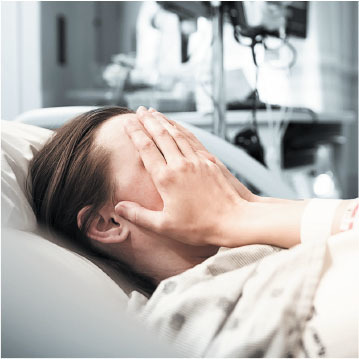
"I think about that story of the starfish that were all washed up on the beach," says Cottle. "A little boy is picking up the starfish, one at a time, and throwing them back into the ocean. And someone comes along and says, ‘This is just foolish. You can’t possibly hope to make a difference here. What you’re doing won’t matter.’ But as the boy throws in another starfish, he says, ‘It will matter to this one.’
"I like the way that it harkens back to Dr. Cicely Saunders’ [founder of the modern hospice movement] famous quotation, ‘You matter because you are you, and you matter to the end of your life. We will do all we can not only to help you die peacefully, but also to live until you die.’"
Similarly, God is calling each Christian, each church, to "pick up the starfish that are right in front of us," she says, by caring well for the parishioners, family members, friends and neighbours we each have in our lives. "We need to be faithful. And that’s how I’ve made my peace.
"I pray the prayer of Jehoshaphat [2 Chronicles 20] often. ‘Lord, we are weak and we don’t know what to do. But our eyes are on you.’ "
I pray the prayer of Jehoshaphat often. ‘Lord, we are weak and we don’t know what to do. But our eyes are on you.
For his part Scott thi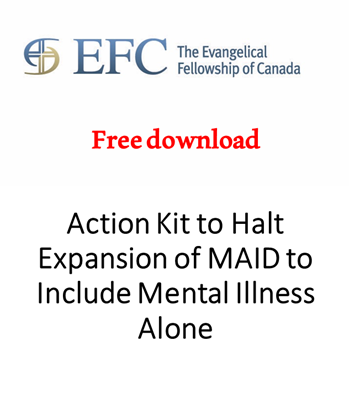 nks of his work today as being on mission.
nks of his work today as being on mission.
"It’s like being called by the Lord to go to a foreign mission," he explains. "I think of going to work now sometimes as like that. When I go into a hospital where MAiD is going on and where people are having these conversations all the time, I think about it as if I’m going into a place that God has called me to.
"But He’s calling me to love these people, to respect these people, to understand their culture. To not react personally as if somehow this is an attack on me, but to go into that setting wondering why God has called me here and wondering what’s going to be possible to accomplish in this situation.
"Not always having expectations of everything being right. But still being hopeful."
Patricia Paddey of Mississauga, Ont., is a senior writer at Faith Today. Read her cover story from last issue "Navigating Medical Assistance in Dying: How the Church is Encountering Voluntary Euthanasia" at www.FaithToday.ca/MAID.
Stock photos from Shutterstock.com. Circular mug shots provided by those interviewed.